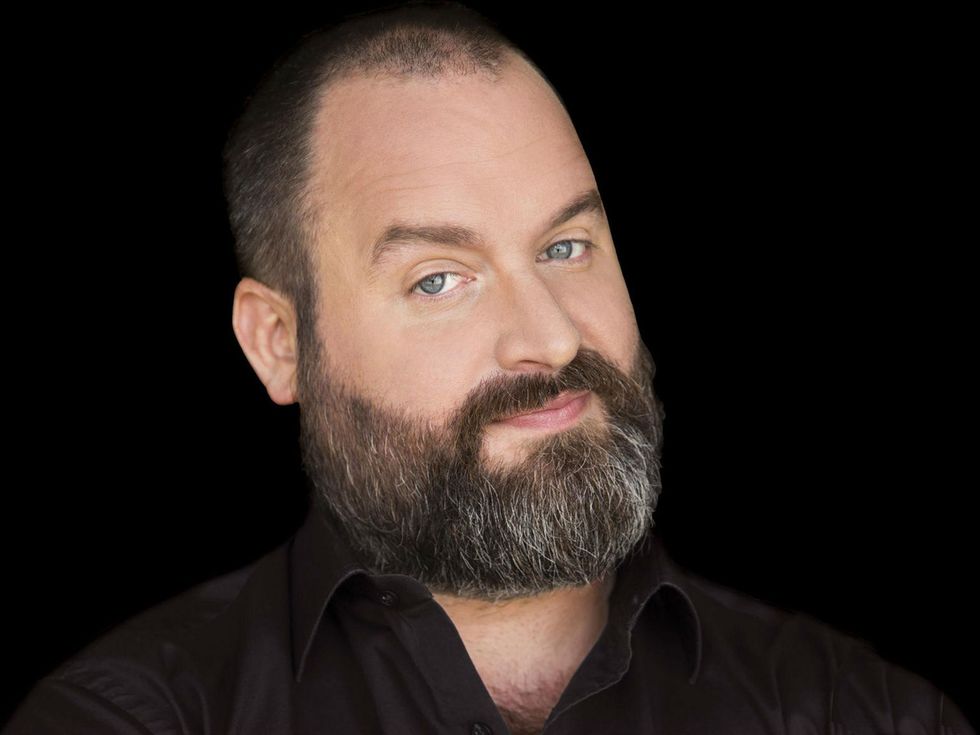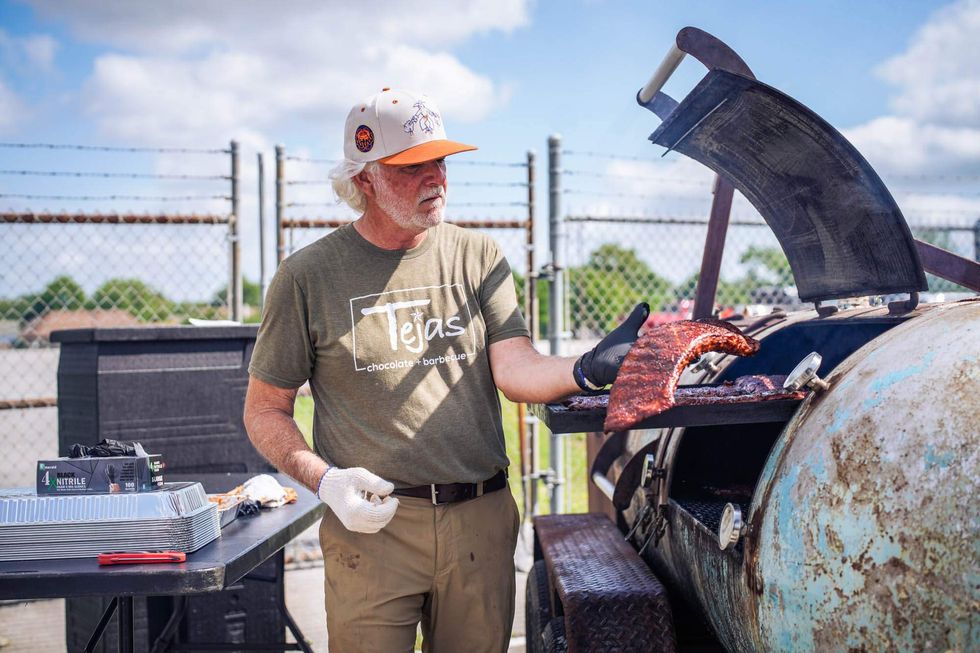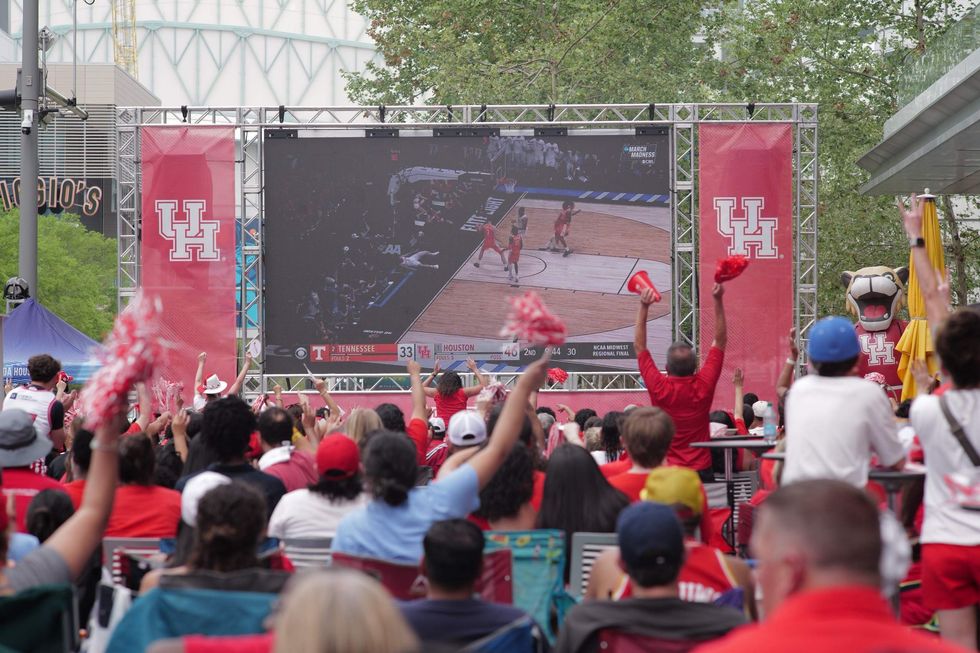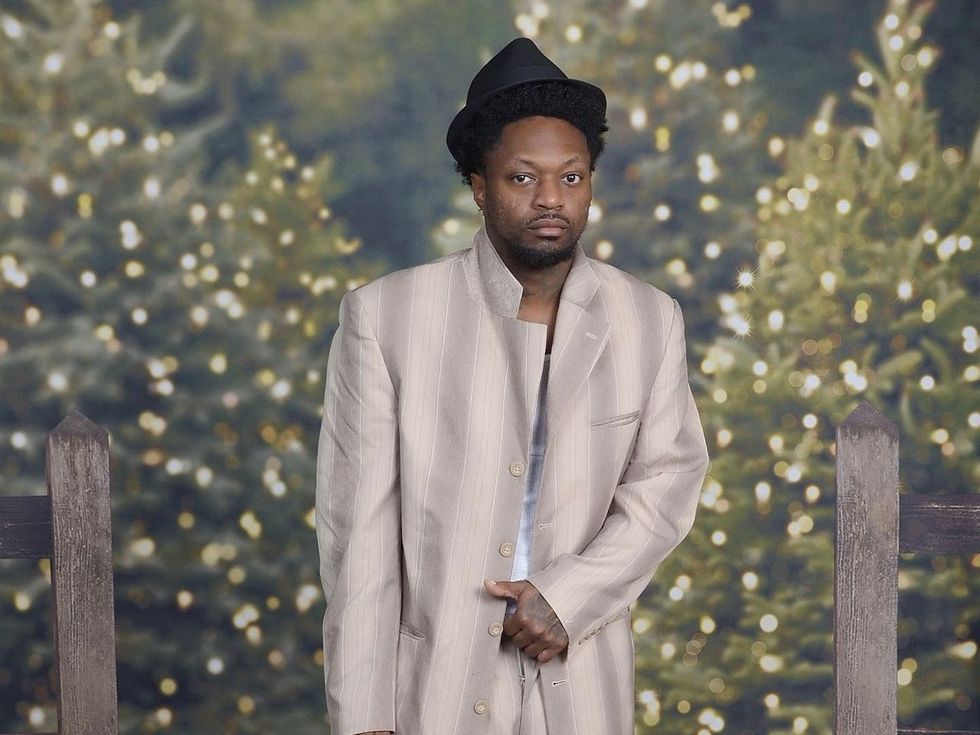Even when times are rough, sometimes you gotta forget about all that and have a laugh or two. Thankfully, you’ll have several chances to do that this weekend, from superstar stand-up/podcaster Tom Segura and comic YouTuber Funny Marco headlining shows to the Riot Comedy Festival serving up an arsenal of local and visiting comedians.
We also have a hot sauce festival, a barbecue festival, a Final Four watch party, and — not to toot our own horn or anything – the 2025 CultureMap Houston Tastemaker Awards! As a cornrowed funk legend once said, enjoy yourself!
Thursday, April 3
Mid Main Houston presents Mid Main First Thursday Block Party
The Mid Main First Thursday Block Party is doing something a little different this month. Pasadena rock band Matamoros will be performing live right out there on Winbern St. at 8 pm. This month’s donation will be going to The Orange Show Center for Visionary Art. (Art cars will also be on display.) Saint Arnold Brewing Company will have free suds available, while art shows will be going on at Mid Main Art Gallery and Sig's Lagoon. 6 pm.
2025 CultureMap Houston Tastemaker Awards
The CultureMap Tastemaker Awards return to celebrate Houston’s top restaurant and bar talent for 2025. Our mission is to shine a spotlight on the people and places that make Houston a world-class culinary destination. At the signature tasting event and awards ceremony, we’ll celebrate all of the nominees as emcee Chris Shepherd unveils this year’s winners. Guests will enjoy an evening full of chef-prepared bites and specialty drinks. 7 pm.
Chaparelle in concert
Alt-country supergroup Chaparelle consists of Texas-based musicians Zella Day, Jesse Woods, and Beau Bedford. What began as a songwriting partnership between Day and Woods evolved into a deeper connection and the couple is now engaged. They began working with acclaimed producer Bedford, who eventually joined the band, solidifying the group’s distinct sound, vocal prowess, and celebrated contributions to their genres. Before their debut album Western Pleasure drops in a couple weeks, you can see them live this weekend. 7:45 pm.
Friday, April 4
Alamo Drafthouse LaCenterra presents Princess Mononoke
This weekend, Alamo Drafthouse LaCenterra will give audiences two versions of a Studio Ghibli classic. In the 14th century, the harmony that humans, animals, and gods have enjoyed begins to crumble. Ashitaka – infected by an animal attack – seeks a cure from deer-like god Shishigami. In his travels, he sees humans ravaging the earth, bringing down the wrath of wolf god Moro and his human companion Princess Mononoke. His attempts to broker peace between her and the humans brings only conflict. 12:45 and 6:15 pm (dubbed).
3rd Annual Riot Comedy Festival & BBQ Cookoff
It’s time once again for Houstonians to get their funny on at the 3rd Annual Riot Comedy Festival & BBQ Cookoff. The four-day festival will feature over 30 comedy shows, including stand-up from over 50 comedians with famous headliners, live podcasts, improv, music, and a national comedy contest. Chris Redd, Sam Tallent, Hans Kim, Katherine Blanford and others will be dropping jokes all weekend. Saturday adds a barbecue cook-off with AYCE passes available. 6 pm (3 pm Saturday; 4 pm Sunday).
Houston Symphony presents "Showstoppers! Celebrating Iconic Women of Broadway"
In this spectacular Broadway show, audiences will hear electrifying showstoppers from Wicked, In the Heights, Hamilton, and more, each with a nod to powerful female characters who never let anyone bring them down. Possessing one of the most dynamic and expressive voices on Broadway, no one’s better suited to these songs than Mandy Gonzalez. As a special treat, Gonzalez will also share a song written just for her by Lin-Manuel Miranda. All ticketholders are invited to a free Encore After Party following Saturday’s performance. 7:30 pm (2 pm Sunday).
Punch Line Houston presents Funny Marco
Kansas City native Funny Marco was born to entertain. The YouTube content creator and social media personality rose to fame by pranking his friends, family, and strangers. He’s best known for the intentionally awkward interviews he’s done with GloRilla, Boosie Badazz, and other Black performers. (Think of it as a ‘hood Between Two Ferns.) This weekend, he’ll be performing at Punch Line Houston, most likely continuing his bad fashion choices by showing up in a suit that’s too big for him. 7:30 and 9:45 pm (7 and 9:15 pm).
Saturday, April 5
The Menil Collection presents Neighborhood Community Day
The Menil Collection's Neighborhood Community Day is an afternoon of art, music, poetry, and family activities in celebration of the museum’s vibrant neighborhood and the 30th anniversary of the Cy Twombly Gallery. Participating organizations include DACAMERA, Houston Center for Photography, Inprint, The Menil Collection, Plant It Forward, Rothko Chapel, Watercolor Art Society, and Writers in the Schools. Next door at the Rothko Chapel, Express Children’s Theatre will present “Art Class for Families with Frida Kahlo,” an interactive performance and hands-on art-making workshop designed to give children of all ages an opportunity to express themselves. 1 pm.
Archway Gallery presents "New Visions, New Voices: Inspiring Connections Through Art" opening reception
Archway Gallery will premiere its latest group exhibition "New Visions, New Voices," putting the spotlight on the work of five artists who are the newest members of the Archway family. The exhibition will feature Rhonda Radford Adams’ vibrant mixed-media collages, Michael Angell’s fantastical metal castings, Gözde Kaya Hepişler’s whimsical ceramic sculptures, Kay Sarver’s expressive oil paintings and portraits, and Eric Stiles’ striking abstract paintings. Through Thursday, May 1. 5 pm.
Avenida Houston and Houston First present Houston Men’s Basketball Final Four Watch Party
The top seed UH Coogs made it into the Final Four in the NCAA Men’s Basketball Tournament. With the team's defeat of Tennessee behind them, UH will square off with Duke in San Antonio. Local fans can come together to have fun and cheer on the hometown team at a free watch party over at Avenida Plaza. Fans will watch the game on a huge, 20-foot LED screen as well as on multiple 80-inch monitors that will be placed throughout the Plaza. Food and beverages will be available for purchase, and restaurants on Avenida will be open for dining. 6:30 pm.
Tom Segura: Come Together Tour
Comedian, actor, and writer — and Austin native — Tom Segura is a major player in the comedy podcast game. He’s best known for going back-and-forth with wife/fellow comic Christina Pazsitzky on Your Mom’s House and going back-and-forth with work wife/fellow comic Bert Kreischer on 2 Bears, 1 Cave. But he’s also got a rep for being a funny guy; he does have five Netflix specials under his belt. He’ll be hitting us with yuks this weekend at NRG Arena. 7:30 pm.
Sunday, April 6
Karbach Brewing Co. presents Hot Sauce Festival
Prepare to get your tastebuds scorched at the 5th Annual Hot Sauce Festival. The day-long spicefest will feature a chance to sample and shop sizzling sauces galore from top hot sauce vendors across the United States. Visitors will vote for their favorite to help crown the hottest and best-tasting sauces. There will be a live DJ, food trucks and cold beer, and more. Just don’t get your Conan O’Brien on and go overboard. Noon.
12th Annual Houston Barbecue Festival
The Houston Barbecue Festival is back, celebrating 12 years of smoky, mouthwatering tradition. This annual event showcases the passion, dedication, and craft of Houston’s top pitmasters, drawing fans from near and far for an unforgettable culinary experience. You’ll also have a star-studded roster of legendary and up-and-coming pitmasters. Adding even more fire to the lineup, this year’s special guest is none other than Burnt Bean Co. from Seguin. 1 pm.
Houston Repertoire Ballet presents Celebration of Dance
Houston Repertoire Ballet celebrates its 29th season with a Celebration of Dance. Classic storybook characters jump from the page onto the stage in Storybook Fantasy. Two new contemporary works will be premiered, including Gray Matter, a new modern dance work by JoDee Engle, and a contemporary ballet piece en pointe choreographed by Kristy Nilsson accompanied by a live string quartet to Samuel Barber’s Adagio for Strings. The finale, Paquita, is a classical ballet, featuring guest artists Yuriko Kajiya and Connor Walsh. 1 and 4:30 pm.
Tom Segura: I'm Coming Everywhere
Tom Segura/Facebook






